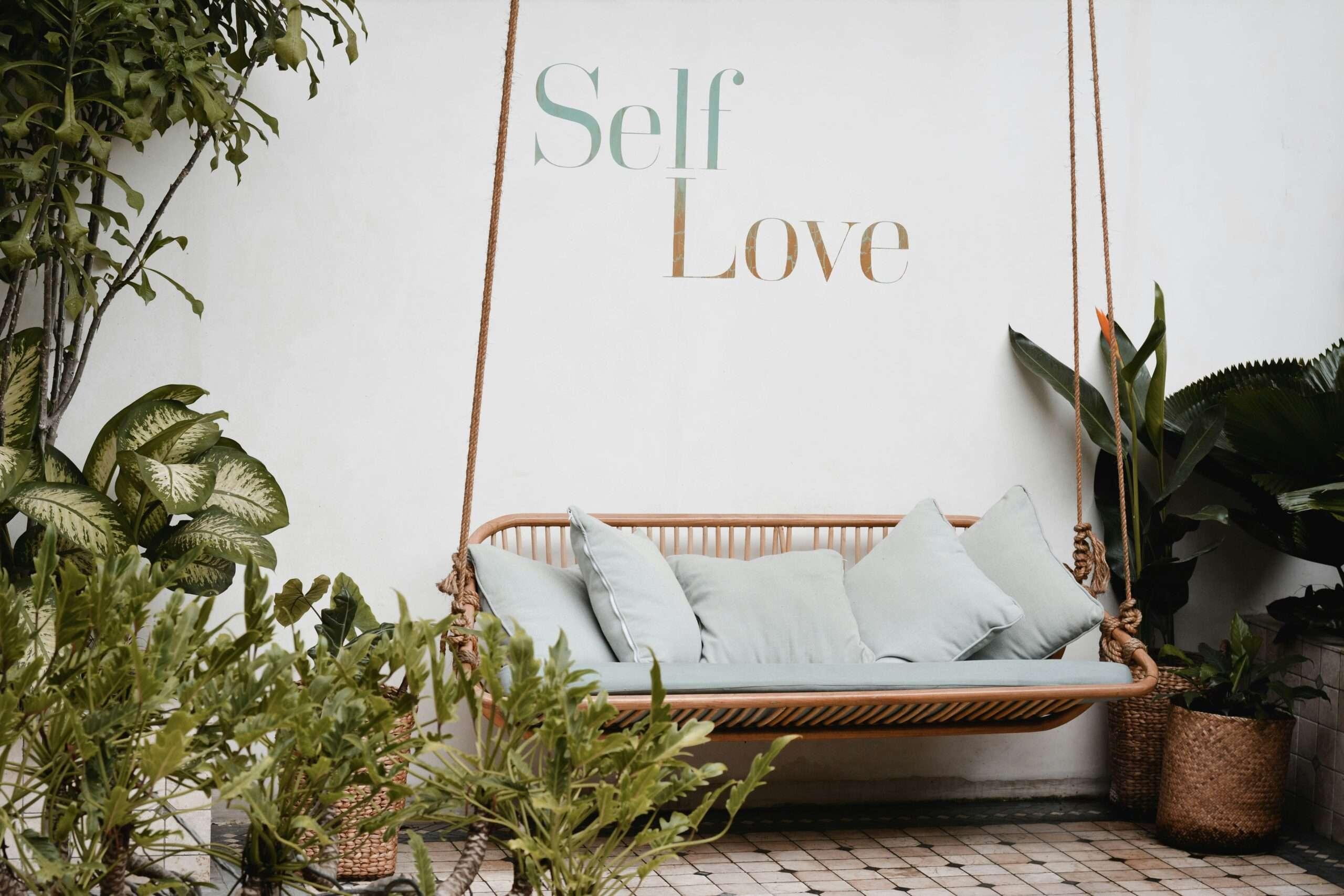How To Build A Healthy Relationship With Yourself
Building a strong and positive relationship with yourself is essential for happiness, self-growth, and overall well-being.
Many people assume they love themselves simply because they are themselves, but the truth is, self-relationship requires conscious effort.
You need to intentionally nurture and deepen your connection with yourself in order to truly thrive.
In this guide, we’ll explore lifestyle changes and mindset shifts that will help you cultivate a fulfilling and healthy relationship with yourself.
Lifestyle Habits for a Stronger Relationship with Yourself
1. Build Self-Trust
Think about the most important relationships in your life—whether it’s with a partner, a friend, or a family member.
What’s the one thing they all need to thrive?
Trust.
Now, apply that to yourself.
If you constantly break promises to yourself, push your needs aside, or procrastinate on your goals, you’re essentially telling yourself that you can’t be relied upon.
That’s not the kind of relationship you want to have with yourself, right?
Rebuilding self-trust starts with small but meaningful actions.
Try setting aside time every week—maybe on a Sunday—to reflect on what you’ve accomplished and plan what you want to focus on next.
Go back to the goals you set for yourself at the beginning of the year and check in.
Are you following through?
If not, don’t beat yourself up—just adjust and recommit.
Every time you stick to a promise, no matter how small, you prove to yourself that you are someone you can count on.
And that, over time, builds an unshakable foundation of self-trust.
2. Step Outside Your Comfort Zone
Let’s be real—comfort zones are cozy, familiar, and safe.
But they can also be a little suffocating if you stay in them too long.
Growth happens when you challenge yourself, and pushing past your limits is one of the best ways to build a stronger relationship with yourself.
Stepping outside your comfort zone doesn’t have to mean doing something drastic.
It can be as simple as signing up for a class you’ve always been curious about, trying a new type of food, or exploring a new part of your city on your own.
Maybe public speaking terrifies you—why not start by practicing in front of a mirror or recording yourself?
Small steps lead to big changes, and every time you face a fear, you prove to yourself that you’re capable of so much more than you thought.
The more you embrace new challenges, the more confident and resilient you become.
3. Treat Yourself with the Same Care You Give Others
You know that warm, fuzzy feeling you get when you do something nice for a loved one?
Maybe you buy them flowers, surprise them with their favorite coffee, or plan a thoughtful gift just to make them smile.
Now, ask yourself—when was the last time you did something like that for yourself?
Too often, we wait for someone else to treat us with kindness and appreciation when, in reality, we can give that to ourselves anytime.
Buy yourself the flowers. Take yourself out on a date. Cook a meal just for you, set the table nicely, and enjoy it like you would with a guest.
These little acts of love remind you that you are just as deserving of care and attention as anyone else.
When you start treating yourself with the same thoughtfulness you show others, your self-relationship will flourish.
4. Set and Honor Your Personal Boundaries
If you find yourself constantly saying yes to things you don’t want to do, overcommitting, or feeling drained by other people’s expectations, it’s time to set some boundaries.
Think of boundaries as your personal rules for how you want to be treated—not just by others, but also by yourself.
Learning to say no can feel uncomfortable at first, but it’s one of the most powerful forms of self-care.
You don’t have to explain yourself or feel guilty for prioritizing your well-being.
Start small—maybe decline an invitation when you’d rather have a night in or set a clear time when you stop answering work emails.
Setting boundaries also means making space for yourself. How do you spend your time outside of responsibilities?
Are you scrolling endlessly on your phone instead of engaging in something that truly fulfills you?
Protecting your energy, time, and emotional well-being shows self-respect, and in turn, deepens your self-relationship.
5. Engage in Regular Self-Reflection
Just like any relationship, your relationship with yourself grows through reflection and understanding.
Think about how you cherish memories with loved ones, looking back on shared experiences and seeing how your connection has evolved.
Why not do the same with yourself?
A great way to do this is by revisiting old journals, home videos, or even just scrolling through past photos.
It’s amazing to see how much you’ve changed, what you’ve learned, and how far you’ve come.
If you don’t already journal, now might be a great time to start.
Even a few sentences a day can help you process your emotions and gain clarity on your thoughts.
Self-reflection is also about checking in with where you’re headed.
Are you living in alignment with what you truly want?
Are you making time for the things that bring you joy?
Taking the time to pause, reflect, and appreciate your journey strengthens your self-relationship and helps you move forward with intention and confidence.
Mindset Shifts for a Healthier Relationship with Yourself
1. Change Your Inner Dialogue
The way you talk to yourself matters.
If your inner voice is constantly criticizing you, doubting your abilities, or focusing on everything you did wrong, it’s going to have a serious impact on your self-relationship.
Imagine if a close friend spoke to you the way your inner voice does—would you still want to be around them?
Probably not.
It’s time to challenge negative self-talk.
The next time you catch yourself being overly critical, pause and reframe the thought. Instead of “I messed up again, I’m such a failure,” try, “I made a mistake, but I’m learning and improving.”
Start treating yourself with the same kindness and encouragement you’d offer a loved one.
Celebrate your accomplishments—big or small—rather than fixating on what you think you should have done better.
The more you shift your inner dialogue, the more positive and supportive your self-relationship will become.
2. Practice Witness Consciousness
Not every thought you have is true or even helpful.
Yet, we often let our thoughts dictate how we feel and what we believe about ourselves.
Practicing witness consciousness means learning to observe your thoughts without reacting to them.
Instead of automatically believing every negative thought, you step back, acknowledge it, and let it pass—just like watching clouds move through the sky.
A great way to strengthen this skill is through mindfulness practices like meditation, deep breathing, or simply pausing before reacting to your thoughts.
The next time a self-doubting thought pops up, try this: Instead of getting frustrated, simply say, “Oh, there’s that thought again,” and let it drift by.
The more you do this, the easier it becomes to detach from negative thinking patterns and stay in control of your self-perception.
By practicing witness consciousness, you free yourself from the cycle of self-doubt and negativity.
You learn to focus only on the thoughts that serve you, allowing you to build a much healthier and more balanced relationship with yourself.
3. View Every Interaction as an Opportunity for Growth
Our relationships with others often reflect our relationship with ourselves.
If someone upsets you, triggers you, or makes you feel insecure, take a step back and ask: Why is this bothering me?
What does this situation reveal about my own beliefs and self-perceptions?
Instead of labeling experiences as purely “good” or “bad,” start seeing them as learning opportunities.
For example, if you find yourself constantly in friendships where you feel unappreciated, ask yourself: Do I struggle to set boundaries? Do I accept less than I deserve?
These reflections provide invaluable insights into how you relate to yourself.
Difficult interactions can also be used as tools for self-awareness. If someone’s comment stings, ask yourself why.
Did they touch on an insecurity you have? Is there an underlying belief you need to work on?
By approaching relationships this way, you shift from feeling powerless to empowered, because now you can actively work on improving both your external relationships and your internal relationships.
Seeing every interaction as an opportunity for self-growth not only deepens your understanding of yourself but also helps you navigate life with greater emotional intelligence and resilience.

4. Adopt a “Life Is a Game” Mindset
Life isn’t about perfection—it’s about growth. Instead of seeing challenges as obstacles, view them as opportunities to level up.
Every setback is a lesson, every mistake is a stepping stone, and every failure is simply redirection toward something better.
When you treat life as a game, you remove unnecessary pressure and give yourself permission to enjoy the process.
Instead of asking, “Why is this happening to me?” shift to, “What can I learn from this?”
This mindset fosters resilience and helps you navigate life with confidence and curiosity.
Approaching life like a game also makes it easier to take risks.
Just like in a video game, every challenge is there to test and grow you. Instead of fearing failure, see it as part of the journey.
The more you adopt this perspective, the more fun and fulfilling life becomes.
5. Take Accountability for Your Actions
Taking responsibility for your actions is one of the most empowering things you can do for yourself.
When you stop making excuses and start owning your choices, you reclaim control over your life.
Instead of saying, “I didn’t work out because I was too tired,” ask yourself, “Why didn’t I prioritize my health today?”
Holding yourself accountable doesn’t mean being harsh or overly critical—it means being honest with yourself.
If you repeatedly find yourself stuck in the same patterns, take a step back and evaluate what’s really going on.
Are you avoiding discomfort? Are you afraid of failing?
Identifying the root cause allows you to address it directly rather than blaming external circumstances.
Accountability also means following through on what you say you’re going to do.
If you set a goal, commit to it. If you make a mistake, learn from it. The more you take responsibility for your own actions, the more trust and confidence you build in yourself.
Over time, this reinforces the belief that you are capable, resilient, and in charge of your own life.
Homework Tasks
✅ Self-Reflection and Connecting with Your Inner Child
One of the best ways to deepen your self-relationship is by reconnecting with your inner child.
Look through old photos, watch home videos, or ask family members about your childhood.
If you kept a journal when you were younger, go back and read your old entries.
This exercise helps you understand how much you’ve grown and can provide insight into patterns you may still carry.
If you don’t have old journals or home videos, start journaling today.
Write about your thoughts, emotions, and experiences. Reflect on how you’ve changed over the years and what your younger self would think of who you are today.
✅ Do Something That Scares You
Growth happens outside of your comfort zone.
Challenge yourself to do something that scares you—whether it’s cooking a meal you’ve never tried before, signing up for a new class, networking, meeting new people, or even joining a dating app if that’s something you’ve been putting off.
It doesn’t have to be a big leap. The key is to start small but consistently push yourself beyond your usual routine.
The more you do this, the stronger your self-trust and confidence become, reinforcing a positive and healthy relationship with yourself.
Final Thoughts
Your relationship with yourself is the most important one you’ll ever have.
By making intentional lifestyle changes and adopting a growth-oriented mindset, you can cultivate a deep sense of self-trust, confidence, and fulfillment.
Start today—because the stronger your self-relationship, the more vibrant and rewarding your life will be.





